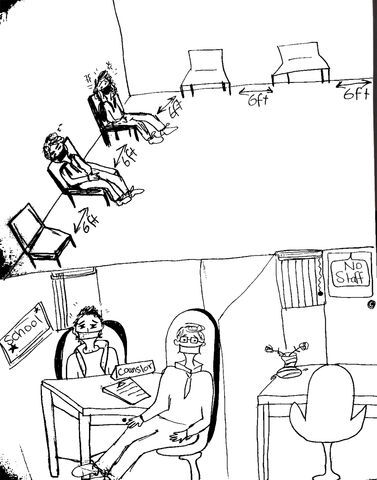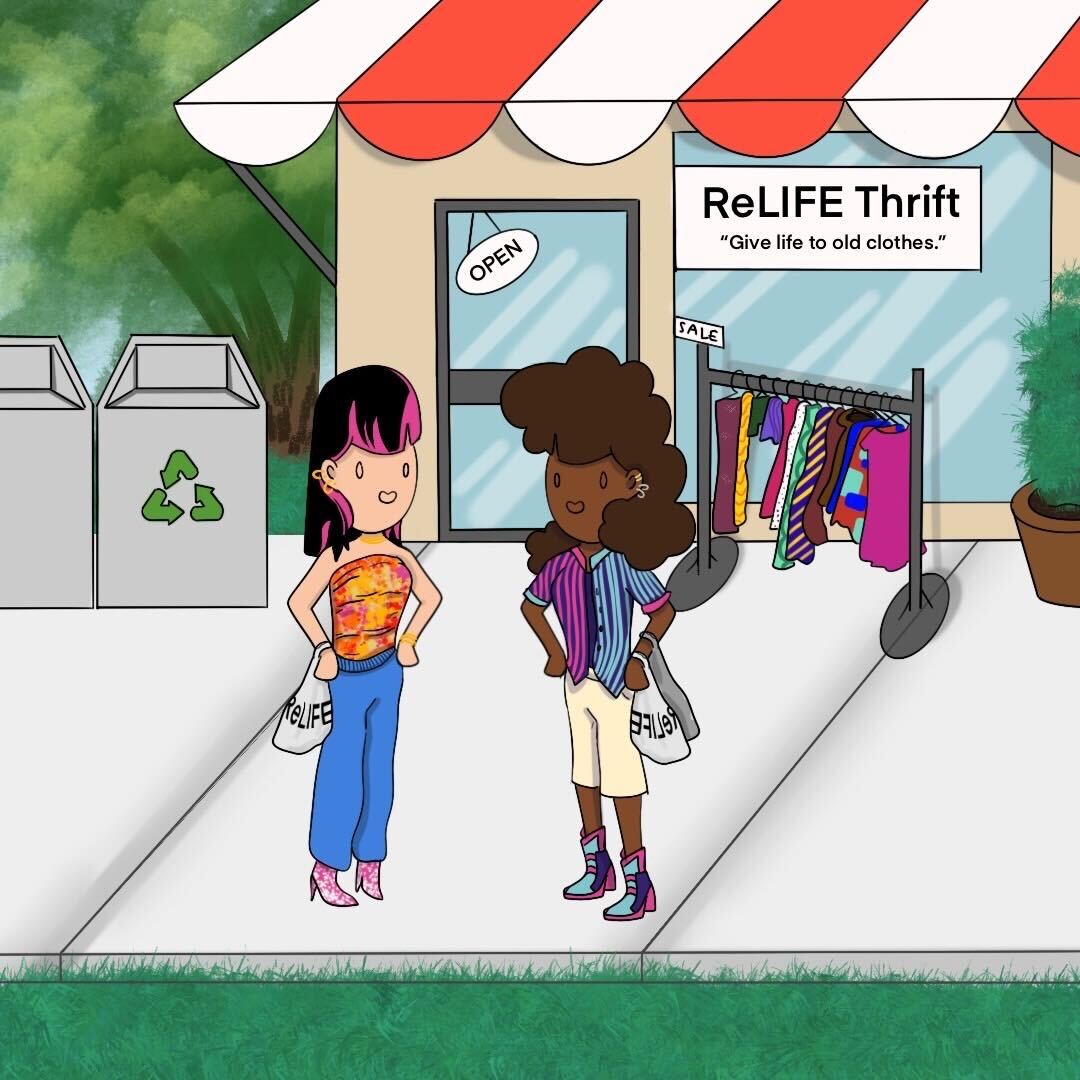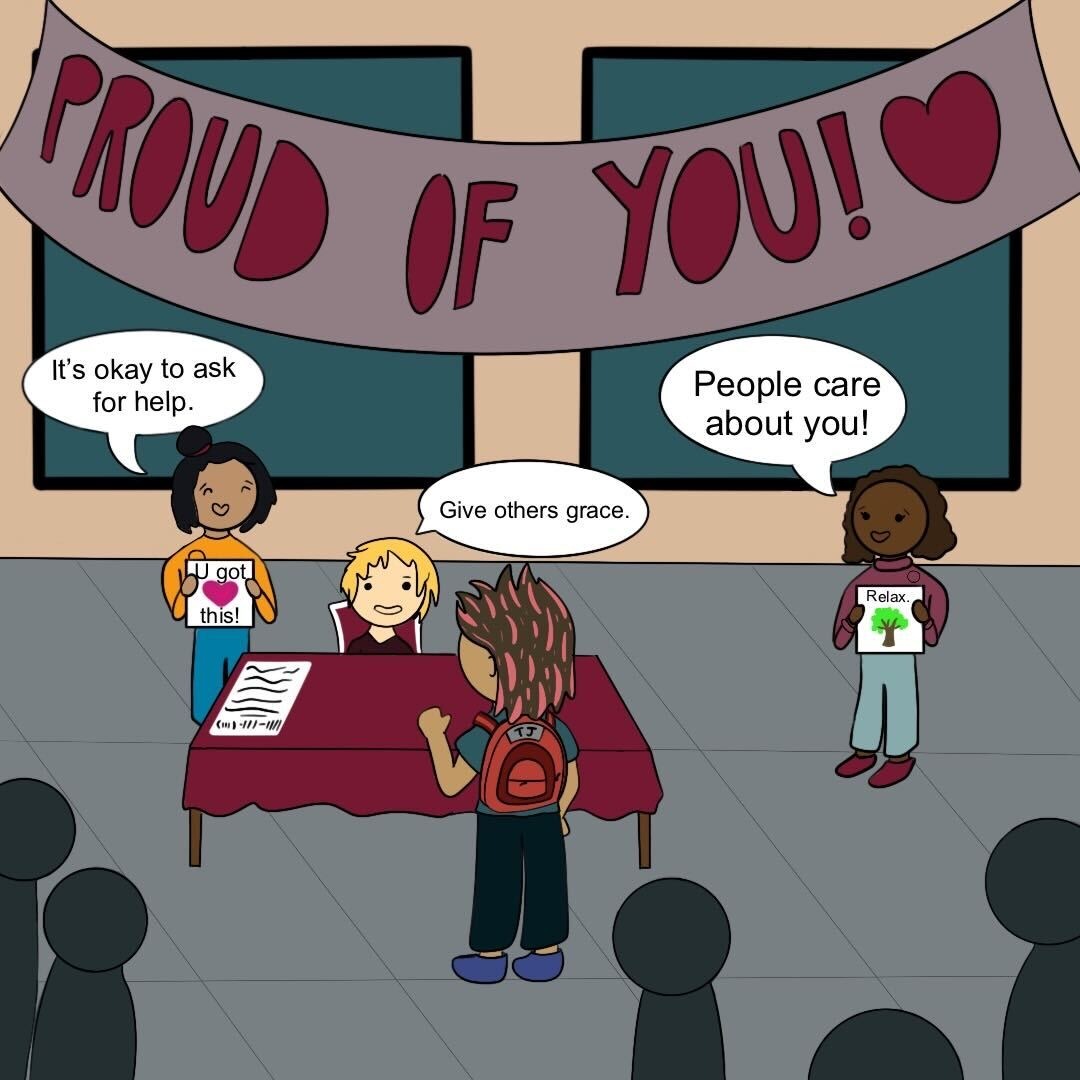COVID-19 currently acts as an incubator for mental health struggles due to its stressful and unpredictable nature. Students especially find this stress can be heightened with college posing challenging components that make their days more difficult.
Due to these circumstances, Texas State should better prepare the Counseling Center for students struggling with mental health.
The Counseling Center currently works with students through Zoom or limited in-person services. Counseling Center Director Bonita Reeder says students are utilizing the online services at high rates.
“Since spring when outreach programs have been offered virtually, more students have participated,” Reeder says. “The center staff will continue to use this modality for programming after the pandemic crisis abates.”
Alena Williams, a special education junior, has utilized the Counseling Center throughout her time at the university and expresses concerns about its ability to accommodate students.
“Now more than ever, students need help transitioning through this new normal even if the counselors don’t know what tomorrow can bring,” Williams says. “The transition to college is nothing compared to the transition during the pandemic. As college students, we are still learning to cope.”
Counseling Centers at universities are limited in terms of what can reasonably be provided to their students. This includes session limits, time restrictions and limited staffing.
However, the pandemic calls for adjustments, and students need people to talk to now more than ever. Through all the changes the university has made during this time, helping the Counseling Center should have been at the very top of its priority list.
Prior to COVID-19, Texas State’s Counseling Center already had limited staffing. In addition to that, students are only allowed 15 sessions during their time at the university. Once the limit is reached, the student has to find outside help, which tends to get expensive, typically ranging from $65 per hour to $250 or more.
Those circumstances were already unfair prior to the global health crisis. Now living through it, students need the resources more than ever.
“I do think 15 sessions in four years is not enough,” Williams says. “I have not [used all] my sessions because I’m like, ‘Why would I start [when] in 15 weeks I have to stop talking to someone I built trust with?'”
Williams also says there is a fear of a higher tuition rate should the Counseling Center offer more than 15 free sessions throughout their entire college career, noting that one of her peers attends a school that offers a sustainable and “realistic” method of counseling for its students.
“My friend goes to Texas Women’s University, and the students get 15 free sessions a semester,” Williams says. “With this, the student can go once a week between their school schedule. I feel that is more realistic, but I bet it would just give them a reason for Texas State to raise tuition [prices].”
Efforts to stop the spread of COVID-19 have resulted in the implementation of safety precautions that limit human interaction. Students thrive on interaction and connecting with their peers, but those trying to protect themselves from contracting the virus won’t always place themselves at risk to do so — which is the responsible and correct decision.
According to the Centers for Disease Control and Prevention, public health actions, such as social distancing, can create feelings of loneliness and increase stress and anxiety.
Thus, Texas State should take this into consideration. Although vaccines are becoming available, the pandemic is getting worse. Students having to sit at home will likely not change anytime soon.
Research conducted in Texas by Farzan Sasangohar, an industrial and systems engineering professor at Texas A&M University, shows that of “195 students, 138 (71%) indicated increased stress and anxiety due to the COVID-19 outbreak. Multiple stressors were identified that contributed to the increased levels of stress, anxiety, and depressive thoughts among students.”
Texas State is nearing a year of navigating through the pandemic; not adjusting to what students need the most is only a disservice.
A conversation can save a life, and expanding the Counseling Center’s resources can make those interactions more accessible. For some students, their mental health depends on it.
– Taylor Bradley is an English senior
The University Star welcomes Letters to the Editor from its readers. All submissions are reviewed and considered by the Editor-in-Chief and Opinion Editor for publication. Not all letters are guaranteed for publication.
Opinion: Equip the Counseling Center with more resources
Taylor Bradley, Opinion Columnist
January 20, 2021

More Counselors
0
Donate to The University Star
Your donation will support the student journalists of Texas State University. Your contribution will allow us to purchase equipment and cover our annual website hosting costs.
More to Discover










